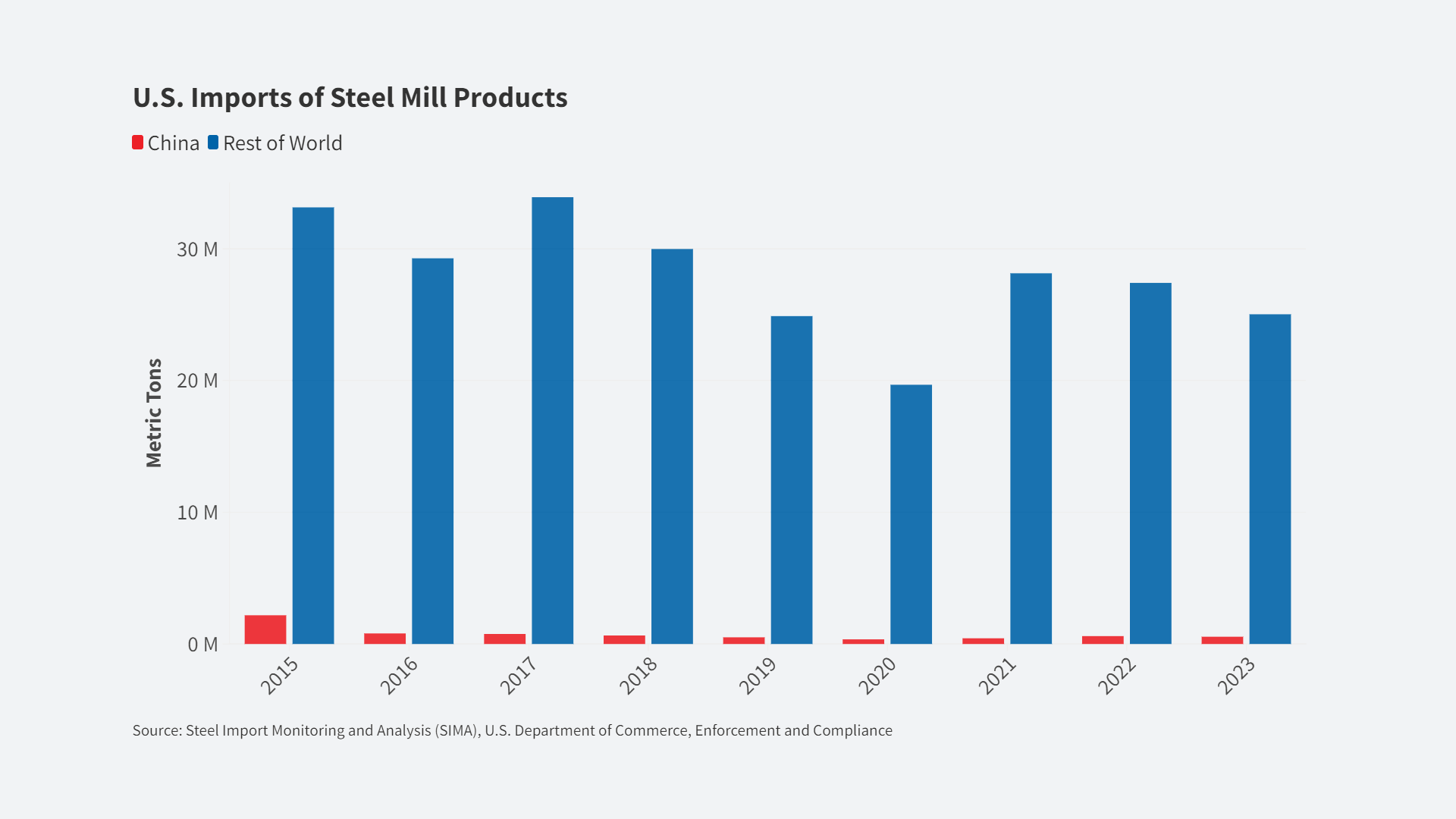From the moment it came out late Tuesday night, it was widely chuckled at in Washington policy circles: Two ham-handed slides obtained by the Washington Post, reportedly authored by the White House’s main trade advisor, blaming a “weakened manufacturing base” for problems ranging from factory closures and job losses to drug use and dropping marriage rates.
[Danny Vinik | October 19, 2017 | Politico]
The slides bounced around Twitter, with reactions ranging from bemused mockery at the lack of data in the slides to outright horror at some of the claims which included “Increased Spousal Abuse” and “Higher Abortion Rate.” “This…is so wrong, we don’t know where to begin,” proclaimed NARAL, the abortion-rights group.
Its author is Peter Navarro, who leads the White House Office of Trade and Manufacturing Policy. Among economists, Navarro is surely an outlier on trade issues, with a longtime single-minded focus on the dangers of China and the problems with NAFTA that has earned him a reputation as a crank in some circles. But are his slides really so ridiculous?
Well, no.
In fact to many economists, Navarro’s slim report rings broadly true. A growing body of academic evidence indicates that certain U.S. trade policies and the loss of hundreds of thousands of manufacturing jobs have had both economic and social costs, and have contributed to many of the social ills that plague the Rust Belt today. If anything, experts said, the skeptical reaction to Navarro’s document represents a failure to understand the true damage that job losses have caused in Trump’s America—and how those losses can bleed over into other aspects of a person’s life, creating long-lasting negative consequences on their family and community.
The seminal paper on this issue, released in July, comes from economists David Autor of MIT, David Dorn of the University of Zurich and Gordon Hanson of the University of California, San Diego. The paper examined how economic shocks—specifically, China’s accession to the World Trade Organization in 2001—can hurt the marriage prospects of men and lead to fewer marriages, more divorce and other social ills. The authors found that men were especially hurt by the trade-induced loss of manufacturing jobs, reducing their earnings advantage over women and making them less appealing marriage partners. This led to a litany of social ills: Compared to industries and areas that didn’t face a similar trade shock, the authors found, marriage rates and fertility declined while divorce, child poverty, out-of-wedlock births, mortality and opioid use all increased.
“Why is the opioid problem so severe in West Virginia and Ohio?” Autor said in an interview. “These are places that economically have cratered, for various reasons. And people are frustrated and desperate and they look for other things to do with their time and attention. We see this all the time. It’s generically true that economic despair leads to all kinds of social maladies.”
In other words, Navarro’s broader point—that the economic costs of trade can contribute to social problems—is correct.
Not everything, though. Navarro’s slides also say—without any references to back them up—that the weakened manufacturing base is to blame for abortion, incarceration, spousal abuse, and homelessness. On those, said Autor, “I have no idea where it comes from.” And Autor pushed back strongly on Navarro’s broader stance on trade, arguing that he and his coauthors’ findings aren’t a reason for the U.S. to cut itself off from the world and terminate past trade agreements, like the North American Free Trade Agreement, which Navarro and President Donald Trump have both heavily criticized. (On Tuesday, negotiators delayed the next round of NAFTA renegotiations, citing major disagreements among the three countries and raising fears that Trump could ultimately withdraw from the pact.) To Autor, exiting NAFTA or attempting to block Chinese trade now would be a big mistake. “You can create an equivalent shock by attempting to turn back the arrow of time,” he said.
Instead, Autor suggests that economists, policymakers and the public need to understand that trade has both benefits and costs, and Washington must help the people who bear the brunt of those costs, something the government has failed to do for manufacturing workers. “If we are going to reap some of the benefits of trade,” he said, “we should be prepared to help people on the losing end of that.”
Aaron Sojourner, a labor economist at the University of Minnesota who worked at the Council of Economic Advisers from August, 2016, until this past June, agreed with Autor’s position and extended the analysis to new technologies, like artificial intelligence, which—like major trade shocks—are going to create both winners and losers. Policymakers must figure out how to integrate those new technologies into the workplace and society without forcing a minority of Americans to bear the cost, he said.
That begins by convincing people that those costs are real, which economists were slow to do in the case of trade. Based on the reaction to Navarro’s document, which Sojourner described as “dismissive,” economists still have quite a bit of work to do. But both Autor and Sojourner are hopeful that this story—that economic shocks can lead to broader social and personal problems—is intuitive enough for many people to understand.
“It seems obvious to me that if people lose economic opportunities, they become less attractive marriage partners and the community and family start to become under strain,” Sojourner said. “I don’t know what else you would expect.”













